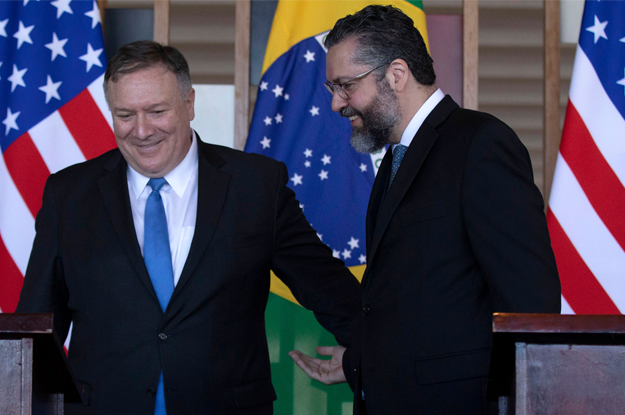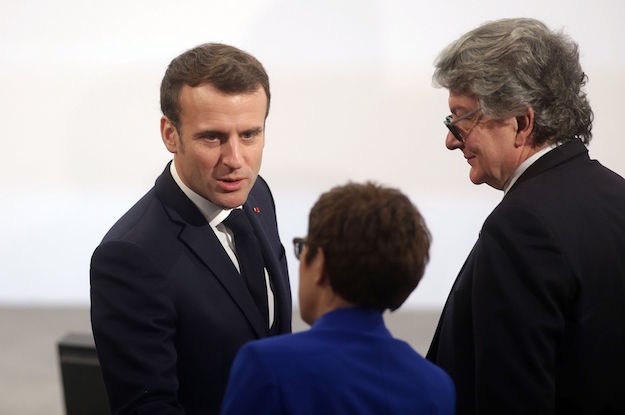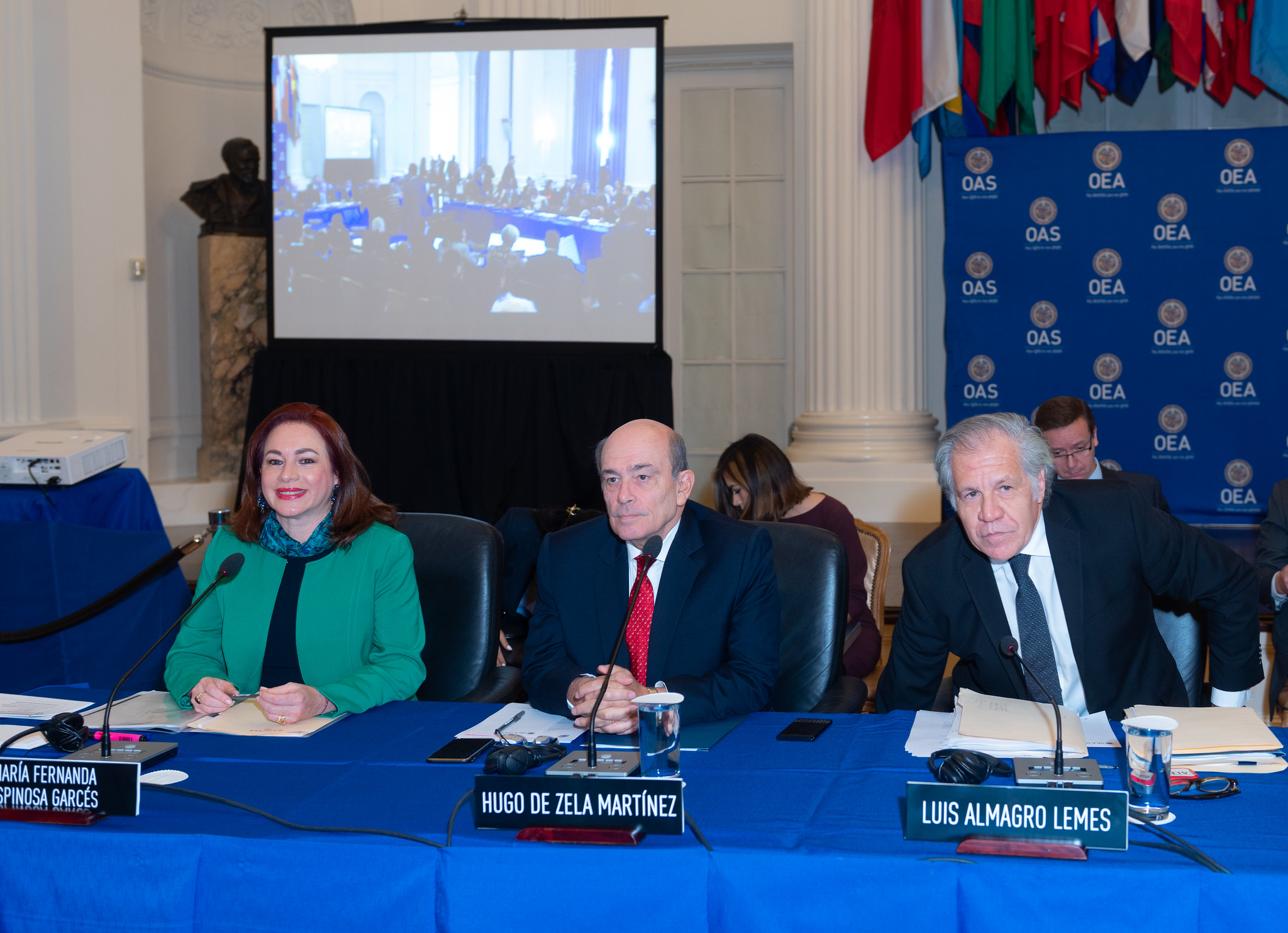This article is adapted from AQ’s print issue on piracy. To see the rest of our package on Brazilian politics, click here.
No one knew exactly what U.S. Secretary of State George Marshall had in mind when, in 1947, he created a “policy planning staff” and invited George Kennan to run it. Kennan was a rising star in the U.S. postwar foreign policy apparatus. A year before, he had written his “Long Telegram” from the embassy in Moscow calling for a containment strategy against the Soviet Union — a document that would become the cornerstone of U.S. diplomacy over the ensuing decades of the Cold War.
Marshall’s first instructions were minimalist: “Avoid trivia.” Kennan took them so seriously that he decided to inscribe the two words on the policy planning staff official seal, where they remain to this day.
For Kennan, avoiding trivia meant conceptualizing a U.S. grand strategy, detecting global trends and thinking critically about ways to leverage them to the benefit of Washington’s national interests. While the State Department’s regional and thematic offices looked at the trees, the policy planning staff would look at the forest of rising and declining powers, ideological clashes and key areas of global competition.
Kennan’s seat would later be occupied by other luminaries of the American foreign affairs intelligentsia — people like Paul Nitze, Walt Rostow, Paul Wolfowitz and Richard Haass — and its influence would go far beyond U.S. borders. Kennan-style policy planning departments soon proliferated across the globe. Grand strategy thinking was institutionalized and became a common feature in the diplomatic landscape almost everywhere — from NATO-members to emerging powers in Latin America, Asia and Africa.
Published by Brazil’s Foreign Ministry (Itamaraty) in English, The Road Ahead: The 21st-Century World Order in the Eyes of Policy Planners engages in the fascinating exercise of bringing together diplomatic policy planners from 18 countries and the European Union to present their own “long telegrams.” The list of contributors is diverse: Argentina, Brazil, Chile, Mexico, all five permanent members of the UN Security Council, the EU, Spain, Italy, Germany, Turkey, Egypt, Indonesia, Singapore and Japan. The book was organized by the Brazilian diplomats — and policy planners at the time — Benoni Belli and Filipe Nasser, who also wrote the Brazil essay. Former Brazilian Minister of Foreign Affairs Aloysio Nunes, and the head of FUNAG (Itamaraty’s academic foundation and publisher of the book), Sérgio Eduardo Moreira Lima, wrote the foreword and the preface, respectively.
The result is a mosaic of views on a fluid and hard to articulate global order, as well as a discussion on countries’ diplomatic strategies to navigate it. Kennan’s Cold War reality was defined by bipolarity, with the U.S.-Soviet confrontation as the organizing element of international politics. A common theme in the 19 essays is how all-encompassing definitions for the global distribution of power — unipolarity, bipolarity, multipolarity or “apolarity” — have become inadequate to describe our world.
Contrary to the post-Cold War international affairs literature of the 1990s and 2000s, most authors here conclude that great power competition will be a decisive — if not the decisive — feature of the global order in coming years, looking particularly at U.S. relations with China and Russia. Several also reflect on how new technologies, such as artificial intelligence, will disrupt diplomacy. Unsurprisingly, President Donald Trump’s revisionist approach to the global order on areas like trade and climate change is listed as a major concern in almost all essays (with the obvious exception of the U.S.’).
The 19 analyses vary in style, depth and overall quality. Most are good, and the best are from Argentina, Brazil, India, the United Kingdom and France (the French author, Justin Vaïsse, recently published a biography of American grand strategist Zbigniew Brzezinski). Yet the most interesting aspect of the exercise is not necessarily the content of the articles. By asking policy planners to present their view, the book offers a colorful palette of diplomatic cultures and traditions. In near caricature, the French essay is a Cartesian exposé, while the Brazilian diplomats make an effort to show off erudition and the American essay is, well, mostly about the U.S.
The book’s publication in Brazil is mired in irony. The Road Ahead came out a month before right-wing Jair Bolsonaro was elected president with the promise of upending Brazil’s international strategy of past decades. Bolsonaro’s foreign minister pick, the midlevel career diplomat Ernesto Araújo, espouses a Steve Bannon-type view of the global order. Araújo promises to “free Brazil from globalism,” which he describes as “anti-Christian” and directed by “cultural Marxism,” and celebrates the Trump presidency as the “Hail Mary pass of Western Civilization.” The road ahead for Brazil proposed in the book has been blocked by a political avalanche. Ideas of nonpartisan, professional and long-term diplomatic planning are now buried deep under a new post-truth and über-ideological reality.
—
Simon is the politics editor for AQ and the senior director for policy at AS/COA









